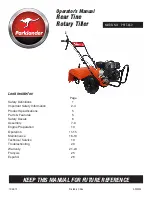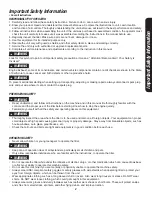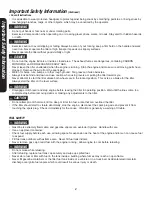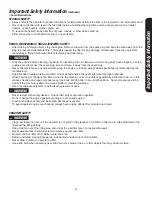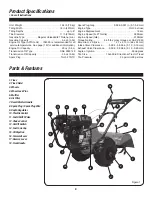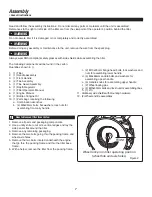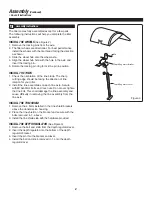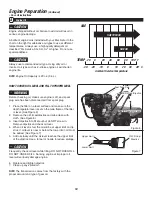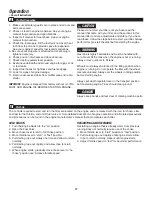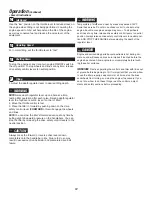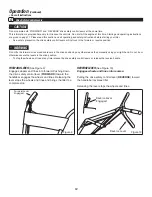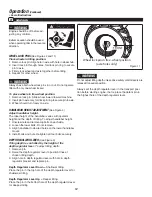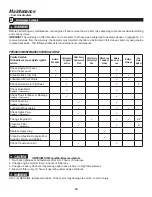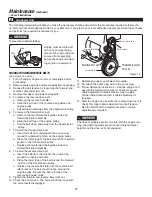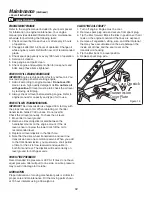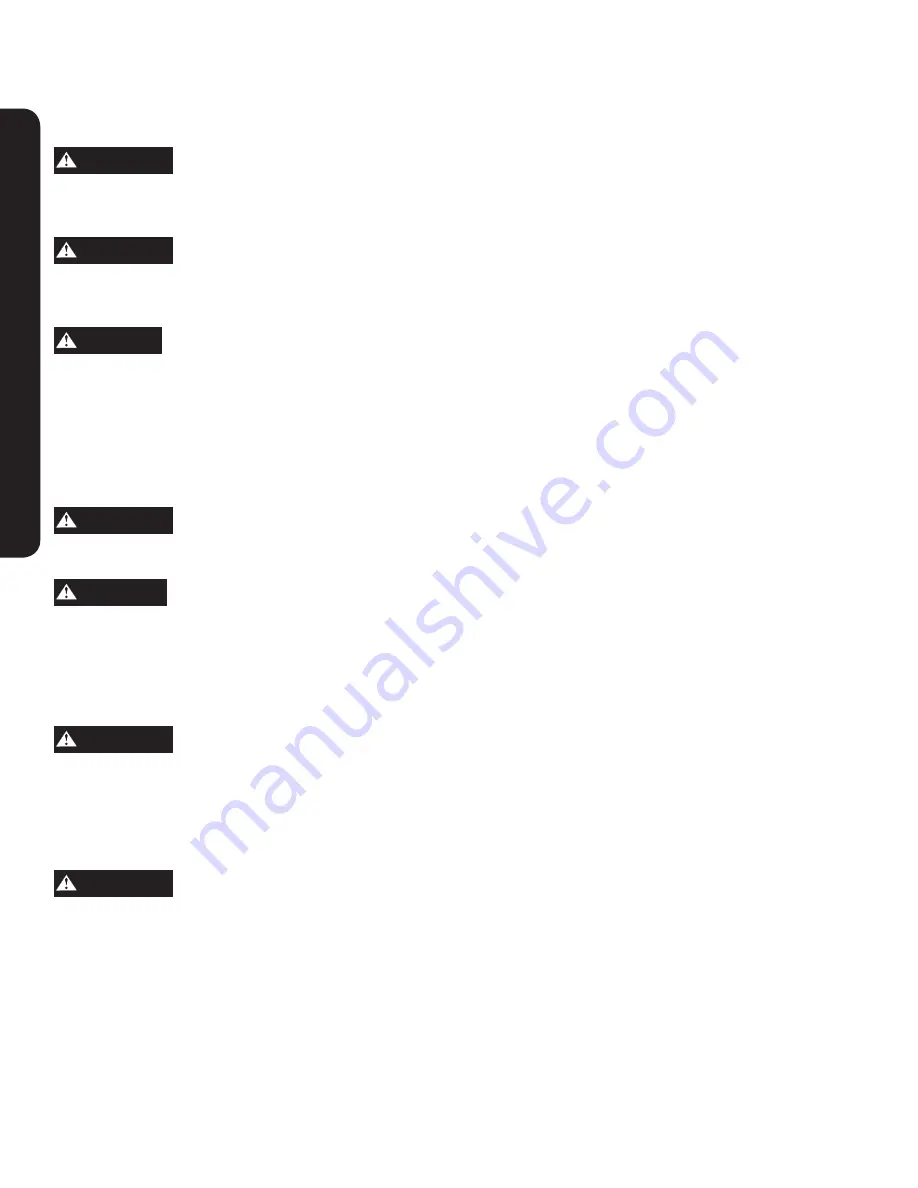
3
Important Safety Information
(Continued)
• Save all instructions
Important Safety Information
• It is advisable to wear protective headgear to protect against being struck by small flying particles, or being struck by
low hanging branches, twigs, or other objects, which may be unnoticed by the operator.
WARNING
• Do not put hands or feet near or under rotating parts.
• Exercise extreme caution when operating on or crossing gravel drives, walks, or roads. Stay alert for hidden hazards
or traffic.
WARNING
• Exercise caution to avoid slipping or falling. Always be sure of your footing; keep a firm hold on the handle and walk;
never run. Never operate the tiller at high transport speeds on slippery surfaces.
• Never operate the tiller without good visibility or light.
DANGER
• Do not run the engine indoors or inside a closed area. The exhaust fumes are dangerous, containing CARBON
MONOXIDE, an ODORLESS AND DEADLY GAS.
• Never leave the tiller unattended when the engine is running. Stop the engine and make sure all moving parts have
stopped. Remove the wire from the spark plug.
• Watch for holes, ruts, bumps, or other rough ground. Tall grass can hide obstacles.
• Always look behind and down and use caution when using reverse or pulling the tiller towards you.
• Never attempt to start the tiller unless both wheels are in the locked position. This acts as a brake for the tiller.
Always start the tiller on the level surface.
WARNING
• Disengage clutch lever and stop engine before leaving the tiller in operating position. Wait until the tines come to a
complete stop before removing debris or making any adjustments to the tiller.
CAUTION
• Do not attempt to till hard soil, till too deep or till at too fast a rate that can overload the tiller.
• If the tiller should start to vibrate abnormally, stop the engine, disconnect the spark plug wire and prevent it from
touching the spark plug. Check immediately for the cause. Vibration is generally a warning of trouble.
FUEL SAFETY
WARNING
• Gasoline is extremely flammable, and gasoline vapors can explode if ignited. Handle with care.
• Use an approved container.
• Check fuel supply before each use, allowing space for expansion as the heat of the engine and/or sun can cause fuel
to expand.
• Fill fuel tank outdoors with extreme care. Never fill fuel tank indoors.
• Never remove gas cap or add fuel with the engine running. Allow engine to cool before refueling.
WARNING
• Do not smoke while refueling.
• After refueling, replace fuel tank cap securely and wipe up spilled fuel.
• Never store fuel or tiller with fuel in the tank inside a building where fumes may reach an open flame.
• Never fill gasoline containers or the tiller fuel tank inside of a vehicle or in a truck bed. Accidental electrical static
discharge can ignite fuel vapors which could result in serious injury or death.

